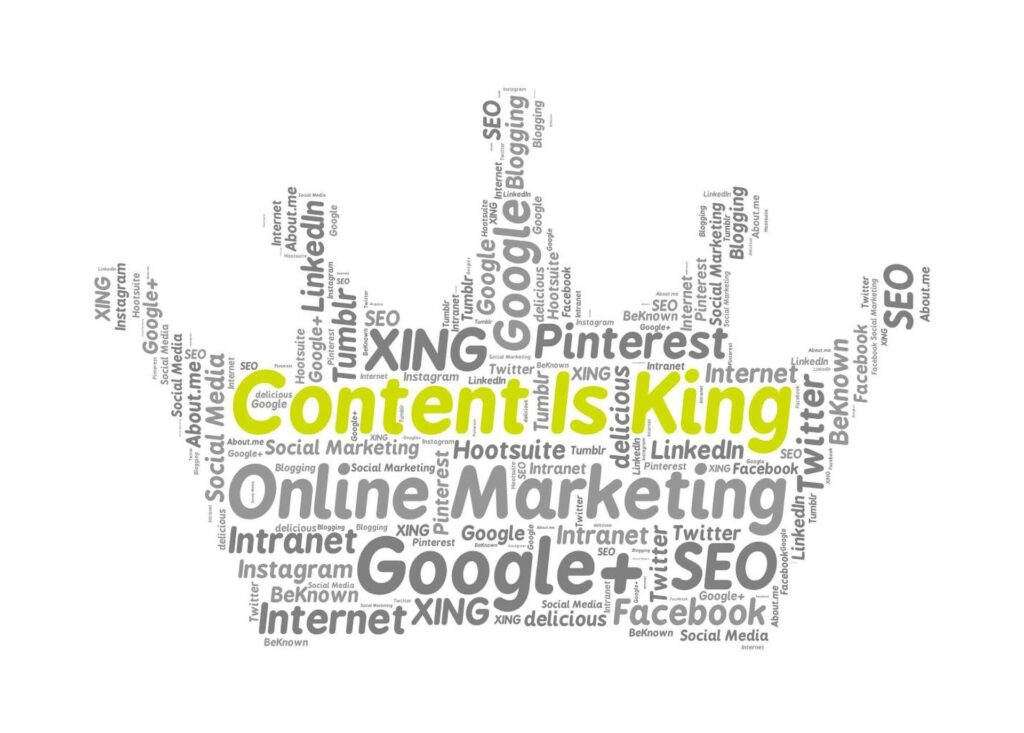
The internet has revolutionized the way we live, work, and interact. Yet, even as the online world becomes more familiar, there are still many surprising facts about internet-based businesses and their rapid evolution. Here’s a deep dive into some of the most fascinating, lesser-known aspects of internet and online businesses—and how they continue to reshape industries.
1. The Internet’s Carbon Footprint is Massive
While the internet allows for virtual transactions that might seem “greener,” the servers and data centers powering it require a significant amount of energy. According to The Shift Project, the digital sector contributes to about 4% of global CO2 emissions—more than the airline industry. Many companies, however, are taking steps to mitigate this, with brands like Google and Microsoft committing to carbon-neutral or even carbon-negative goals for their data centers.
• Fact: Streaming just 10 hours of video content per week generates 8 pounds of CO2 annually, similar to driving a car for 100 miles.
• Brands Leading the Charge: Google, Amazon Web Services (AWS), Microsoft Azure.
2. The Gig Economy is Worth Over $1.5 Trillion
Platforms like Upwork, Fiverr, and Uber have enabled millions of freelancers to offer services online, leading to a booming gig economy. According to Statista, the gig economy in the U.S. alone is valued at around $1.5 trillion, with nearly one-third of American workers involved in some form of freelance work. This growth is expected to continue as more people seek flexible, remote work.
• Statistics: About 58 million Americans were freelancing as of 2022, accounting for over 35% of the workforce.
• Popular Platforms: Upwork, Fiverr, Uber, TaskRabbit.
3. E-Commerce Accounts for Almost 22% of All Retail Sales Globally
E-commerce has grown significantly, especially since the pandemic. In 2023, global e-commerce sales reached around $6.3 trillion, and it’s expected to surpass $8 trillion by 2026, according to eMarketer. Giants like Amazon, Alibaba, and eBay continue to dominate, but smaller, niche e-commerce businesses are also growing rapidly due to the accessibility of platforms like Shopify.
• Example: Amazon accounted for 38% of all U.S. e-commerce sales in 2023.
• Top E-Commerce Brands: Amazon, Alibaba, eBay, Shopify.
4. Email Marketing Has One of the Highest ROI of Any Channel
Email marketing might seem outdated, but it remains one of the most effective forms of digital marketing. The average return on investment (ROI) for email marketing is $36 for every $1 spent, making it one of the highest-performing channels. Businesses like Mailchimp and HubSpot have built entire ecosystems around email marketing automation, helping companies maximize customer engagement.
• Statistics: 77% of marketers have seen an increase in email engagement over the last year.
• Leading Platforms: Mailchimp, HubSpot, ConvertKit.
5. Over 4 Billion People Use Social Media
With more than half of the world’s population on social media, platforms like Facebook, Instagram, TikTok, and LinkedIn have become crucial for online businesses. In fact, DataReportal reports that over 4 billion people worldwide are active social media users, making these platforms a primary channel for brand marketing, customer engagement, and even direct sales.
• Example: TikTok has over 1 billion active monthly users and is rapidly growing, especially among Gen Z audiences.
• Popular Social Media Platforms: Facebook, Instagram, TikTok, LinkedIn.
6. Affiliate Marketing Drives 16% of E-Commerce Sales
Affiliate marketing, where brands reward third-party publishers for driving traffic or sales, contributes to around 16% of e-commerce sales, according to Awin. This low-cost strategy has helped brands scale while providing opportunities for bloggers, influencers, and content creators to monetize their online presence.
• Statistics: The affiliate marketing industry is valued at over $12 billion globally.
• Top Affiliate Programs: Amazon Associates, ClickBank, Rakuten, CJ Affiliate.
7. Cryptocurrency and Blockchain are Creating New Online Business Models
With the rise of blockchain technology and cryptocurrencies, entirely new forms of online business are emerging. Decentralized finance (DeFi) platforms, non-fungible tokens (NFTs), and blockchain-based startups are offering novel business models that often eliminate intermediaries and provide enhanced transparency. Coinbase, OpenSea, and Binance are among the companies making waves in this space.
• Example: OpenSea, the leading NFT marketplace, has recorded over $10 billion in sales since its inception.
• Leading Blockchain Brands: Coinbase, Binance, OpenSea.
8. Over 50% of Online Content is Created by Small Businesses
While large corporations dominate many digital spaces, small businesses are responsible for more than half of all online content creation, according to Clutch. From blogs and social media posts to niche websites and e-commerce platforms, small businesses provide a diverse and valuable perspective, helping to keep the internet rich and varied.
• Example: WordPress powers over 40% of all websites, many of which are small business sites.
• Popular Content Platforms: WordPress, Medium, YouTube.
9. AI-Powered Customer Service is Taking Over
Artificial intelligence is increasingly being used for customer service in online businesses. Chatbots and AI assistants like ChatGPT provide quick responses, enhance user experience, and reduce operational costs. In fact, Business Insider reports that the AI market in customer service is projected to grow to over $25 billion by 2025.
• Brands Using AI: Sephora, H&M, Bank of America (via their “Erica” chatbot).
• AI Platforms: IBM Watson, Google Dialogflow, ChatGPT.
10. Data Privacy Laws Are Reshaping Digital Business
With growing concerns over data privacy, governments are enacting stricter regulations that affect how online businesses operate. The GDPR (General Data Protection Regulation) in Europe and the CCPA (California Consumer Privacy Act) in the U.S. set strict standards for data protection, and non-compliance can lead to substantial fines. As a result, businesses must prioritize user privacy or face penalties.
• Example: Companies like Facebook and Google have been fined millions for GDPR violations.
• Data Privacy Laws to Know: GDPR, CCPA, LGPD in Brazil.
11. The Mobile-First Approach is No Longer Optional
More than 55% of global internet traffic comes from mobile devices, according to Statista. For online businesses, this means designing mobile-first websites and apps is no longer optional—it’s essential for reaching the majority of users. Companies like Shopify and Squarespace offer mobile-friendly website solutions, making it easier for small businesses to adapt.
• Brands Leading the Mobile-First Approach: Shopify, Squarespace, Wix.
12. Cybersecurity Costs the World $10 Trillion Annually
With cyber threats on the rise, businesses are investing heavily in cybersecurity. According to Cybersecurity Ventures, cybercrime damages will cost the world $10.5 trillion annually by 2025. Companies like Norton, McAfee, and IBM are continually advancing cybersecurity technologies to protect online businesses and users.
• Example: Norton provides tools for businesses to secure their websites against threats.
• Popular Cybersecurity Brands: Norton, McAfee, IBM.
The Future of Online Business: Innovation and Adaptation
The online business landscape is changing rapidly. Whether it’s through AI-powered customer service, mobile-first approaches, or the adoption of blockchain, today’s businesses are more connected and innovative than ever. For companies to thrive, staying informed about the latest digital trends and implementing strategies around cybersecurity, customer experience, and market engagement will be key to sustained growth.
For additional insights and resources, check out Statista, Business Insider, and The Shift Project for the latest statistics and information on internet and online business trends.


